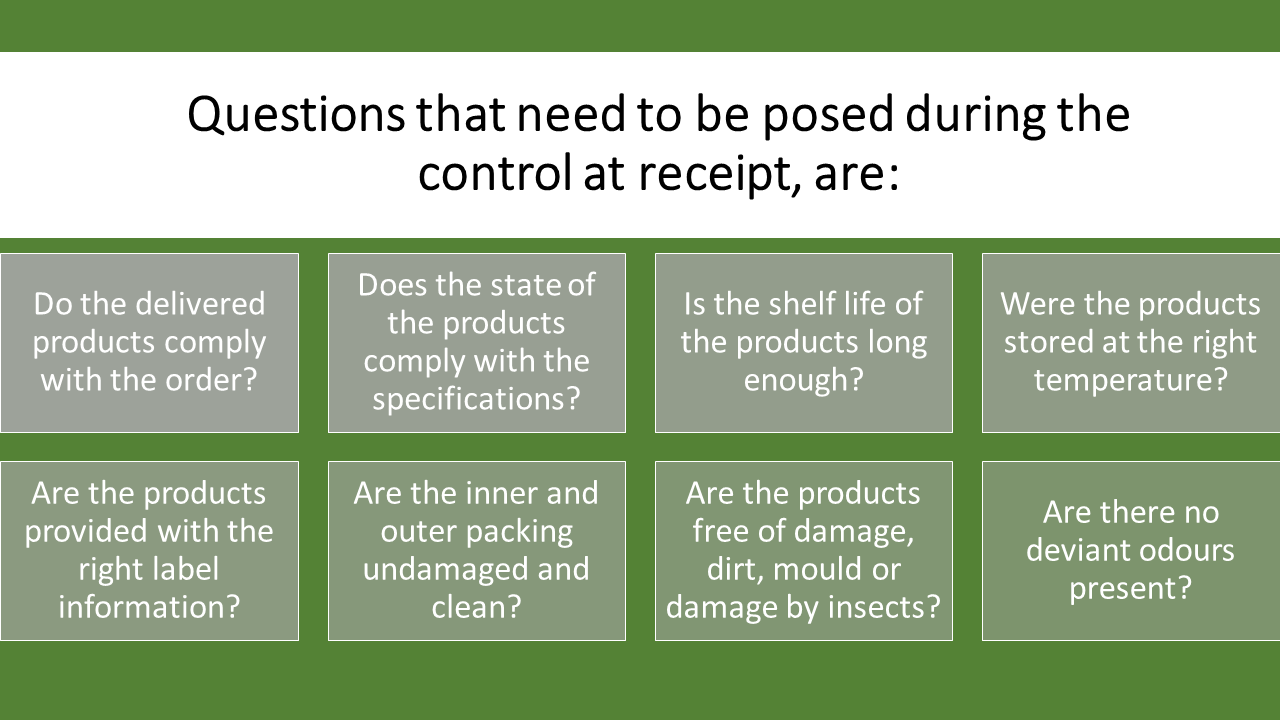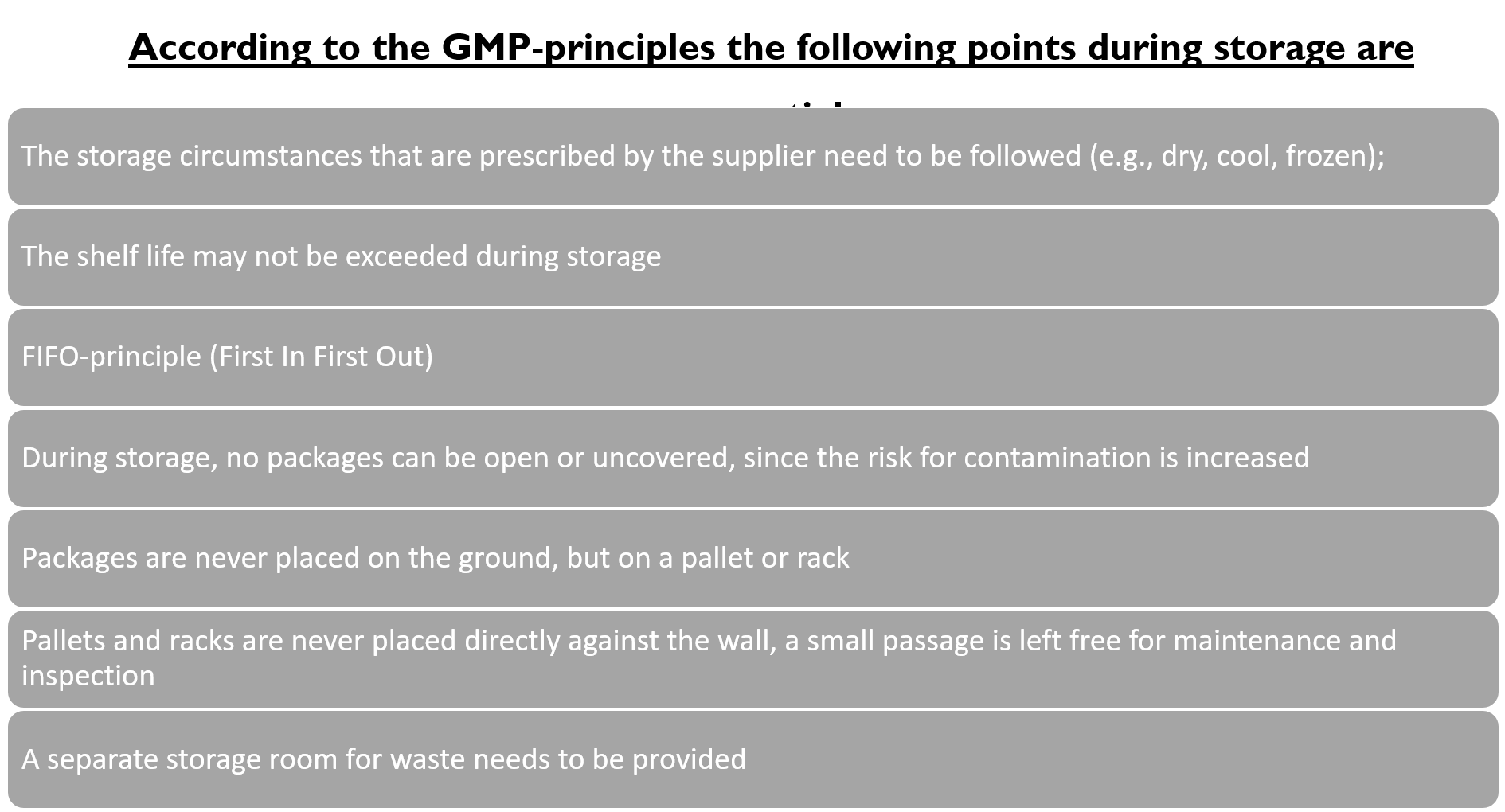Specifications

Purchase specifications need to be asked for by the suppliers or traders. These products are for the end products. They should be able to make such specifications based on their quality management system and the legal requirements. Purchase specifications are an agreement between client and supplier, in which it is described what is delivered, in which form.
When the supplier is not able to place specifications at the disposal of the client, the supplier and purchaser need to establish specifications in mutual agreement.
For the making of specifications, the following information needs to be considered:
- Legislation
- Own research results
- Databases, sector studies
Purchase Policy
When raw materials, auxiliary materials, additives and other goods (e.g., packaging material and food contact materials) are purchased, the supplier is not chosen randomly. The safety and the quality of the produced foods are strongly influenced by the quality of the raw material. Therefore, one needs to make clear agreements with the supplier. The requirements have to be laid down in specifications. Moreover, the supplier must convince the client that his process is under control and that he can guarantee that his products are safe. If necessary, an audit needs to be carried out. A supplier also needs to be evaluated on a regular base, at which it is checked if he complies with the decided arrangement and to see if he is reliable.
The most important base for the evaluation of the suppliers is the determination of the quality of the deliveries:
Commercial Delivery Quality:
- The similarity between the delivered goods and the ordered, completeness
- Comply with the agreed delivery period
- Flexibility, price, conditions, service.
- Establishment in the area.
Delivery Quality with Respect to Food Hygiene:
- Precise information (labelling)
- Sufficient shelf life
- Documents that show that the products are suited for human consumption;
- Clean transportation means
- Personnel hygiene of the driver
- The correct temperature during transport
- Agreement with the specifications
- Microbiologic-hygienic quality of the products.
Other Aspects of Delivery Quality:
- A relationship based on trust by a long-lasting business contact
- Presence of a certified quality management system
- Possibility for regular supplier audits.
Based on the supplier evaluation, for every group of purchased products, a list is made of suppliers with an order of preference.
Reception
When one wants to deliver safe, hygienic and qualitative products, one needs to formulate strict requirements for the raw materials, ingredients and/or auxiliary materials and one needs to control these requirements.
To work in a good hygienic way, all the incoming goods need to be controlled during the reception of the products. Which controls need to be executed, has to be described in a working instruction. Depending on the reliability of the supplier and the sensitivity of the raw material, this control at receipt can be limited or exhaustive.

Defects of the above-mentioned questions will -depending on the seriousness- lead to a complaint, blockage or refusal.
Also, the hygienic condition of the vehicle and the appearance and behaviour of the driver need to be evaluated during the control at receipt. De driver is namely the representative of the company at the client.
Storage
As soon as you received the goods, you need to treat them in a way that no quality deterioration or contamination can occur.
